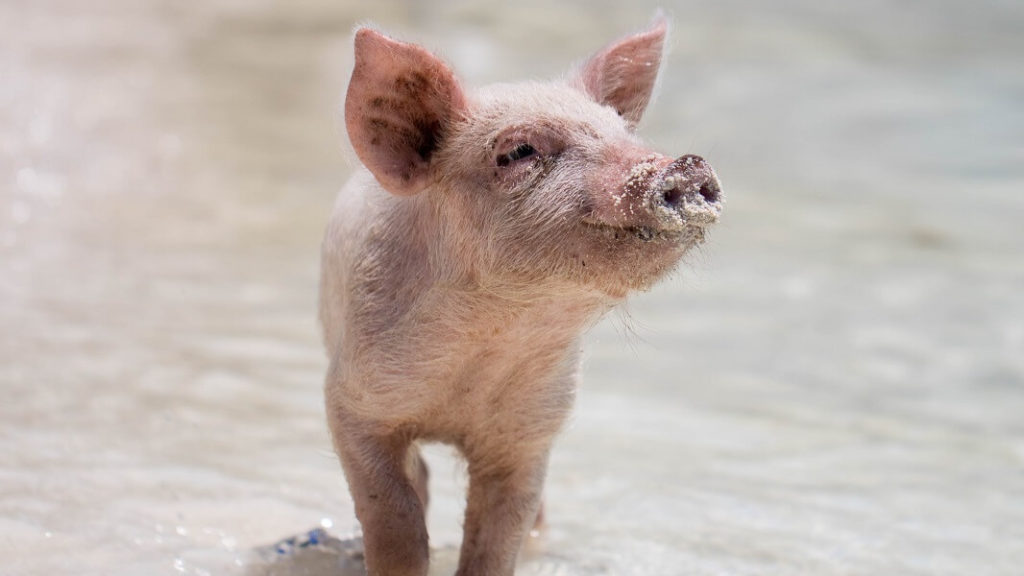Sonoma County Fair replaced the cruel tradition of children wrangling piglets for fun with watermelons.
The 83-year-old fair, which took place earlier this month, previously featured the “pig scramble,” an event where a group of elementary school kids descend upon a pack of piglets under the blistering August sun. In yesteryear, winners got to keep their captive pigs. But in modern times, winners receive a gift certificate. This year saw to the start of a new, kinder tradition where 20 elementary schoolers attempted to be the first to make it through an obstacle course while carrying an oiled watermelon.
Sonoma County Fair board officials acknowledged that as the local community has a heightened awareness of animal welfare, it was time for the pig scramble to end.
“It’s just the right thing to do. We don’t want to see any of the animals get stressed out or hurt,” Annette O’Kelley, a board member of 19 years, told The Press Democrat.
What’s to Love About Pigs?

Pigs are intelligent, social animals who use more than 20 different oiks, grunts, and snorts to communicate. They are one of the few species to pass the “mirror test” — considered a sign of self-awareness — where they are able to use a mirror to find hidden food in a room.
Like dogs, pigs like to play fetch, can learn tricks, and are always curious about the world around them. Naturalist Lyall Watson wrote in his 2004 book “The Whole Hog”: “I know of no other animals that are more consistently curious, more willing to explore new experiences, more ready to meet the world with open mouthed enthusiasm. Pigs, I have discovered, are incurable optimists and get a big kick out of just being.”
But life for factory farmed pigs is very different. Every year, 121 million pigs are killed for food in the U.S., according to animal rights group PETA (People for the Ethical Treatment of Animals). On factory farms, pigs are confined to cramped, filthy spaces until they are loaded onto transport trucks and shipped to the slaughterhouse.
Factory farm environments can be damaging to pigs’ mental health; they are known to self-mutilate or cannibalize other pigs, chew on metal bars, and exhibit other stereotypic behaviors, a 2017 study from the College of Animal Science and Technology revealed.
Speaking about replacing the pig scramble with a watermelon event, PETA caseworker Gemma Vaughan said: “It shows there’s always a creative option to animal cruelty.”


